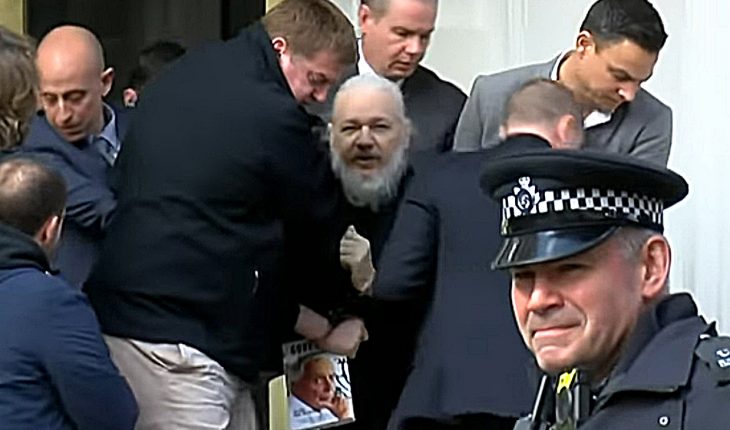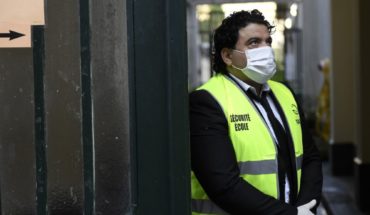A British court decides on Monday whether to extradite to the United States the founder of the Wikileaks information portal, Julian Assange, accused of espionage by the US authorities for disseminating confidential documents in an unprecedented case under original law, the 1917.Assange Spy Act, 49, appears charged with 17 counts of espionage and an additional charge of computer hacking in the last episode of a long saga. The Australian citizen was arrested in April 2019 at the Ecuadorian Embassy in London, where he was granted asylum in 2012, to avoid arrest after Interpol issued an arrest warrant against him for allegations of rape in Sweden, an investigation that was later withdrawn. Finally, at the end of October and after four weeks of the session, Judge Vanessa Baraitser announced that on Monday she would rule against Assange at the Central Criminal Court in London, the Old Bailey. Wikileaks founder is currently being held in belmarsh’s top-security prison in south-east London.At the heart of the issue is a series of documents delivered by former USmarine Chelsea Manning in 2010, including, for example, a 39-minute video of a US Army Apache helicopter firing and killing more than a dozen Iraqis , including two Reuters journalists.Many academics consider the law, which has never been used to prosecute a journalist so far, raises troubling constitutional issues because it violates the rights of the First Amendment to receive and publish information. In an open letter to U.S. President Donald Trump, an independent UN human rights expert asked the representative to forgive Assange.” Mr. Assange has been arbitrarily deprived of his freedom for the past ten years,” wrote Nils Melzer, special rapporteur on torture and other cruel, inhuman or degrading treatment or punishment. “This is a high price to pay for the courage to publish truthful information about government misconduct around the world,” he said. The rapporteur argued that Assange had never hacked, stolen or published false information, nor had it caused reputational harm through personal misconduct, noting that even if he agrees or disagrees with his publications, “clearly cannot be considered crimes.” Assange could be sentenced to up to 175 years in prison under “Special Administrative Measures,” a particularly harsh version of solitary confinement, although Wikileaks is expected to appeal possible extradition, meaning his transfer to the United States could be extended for an uns specified time.
translated from Spanish: British court decides on Monday whether to extradite Assange to the United States
January 3, 2021 |





